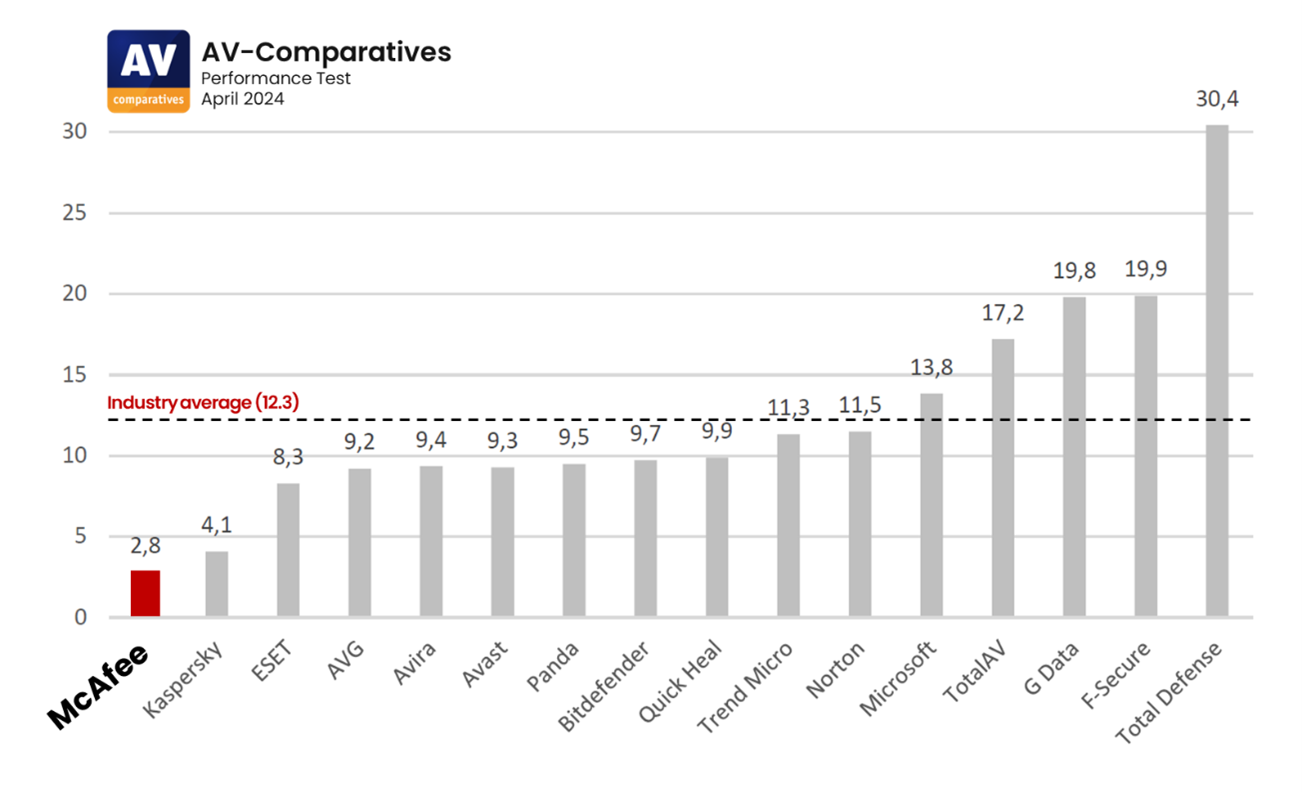
“Antivirus software slows down my PC.” This is a comment that is often heard when talking about antivirus and malware protection.
That might be the case with many security products, but it’s not the case with McAfee. Independent tests since 2016 have proven that McAfee is not only good at catching malware and viruses, but also one of the lightest security products available today.
Antivirus forms a major cornerstone of online protection software. It protects your devices against malware and viruses through a combination of prevention, detection, and removal. Ours uses AI to detect the absolute latest threats — and has for several years now.
For decades, people have installed antivirus software on their computers. Today, it can also protect your smartphones and tablets as well. In fact, we recommend installing it on those devices as well because they’re connected, just like a computer. And any device that connects to the internet is a potential target for malware and viruses.
One important distinction about antivirus is its name, a name that first came into use years ago when viruses first appeared on the scene. However, antivirus protects you from more than viruses. It protects against the broad category of malware too — things like spyware, ransomware, and keyloggers.
To measure how much impact online protection software has on PC performance, some independent test labs include performance impact benchmarks in their security product tests. The most well-known of these test labs are AV-TEST, which is based in Germany, and Austria-based AV-Comparatives. These independent labs are among the most reputable and well-known anti-malware test labs in the world.
Over the years, we’ve tested strongly. Those results got stronger still with the release of our McAfee Next-gen Threat Protection.
McAfee’s AI-powered security just got faster and stronger. Our Next-gen Threat Protection takes up less disk space, reduces its background processes by 75%, and scans 3x faster than before. This makes your time online safer without slowing down your browsing, shopping, streaming, and gaming.
And the results show it.

Even with strong protection continuously monitoring all activity on your PC and laptop for threats, the best kind of antivirus keeps your devices running quickly.
Advances in our already high-performing protection have solidified our excellent standing in independent tests. The labs run them regularly, and we take pride in knowing that we’re not only protecting you, we’re keeping you moving along at a good clip.
The post Does Antivirus Software Slow You Down? appeared first on McAfee Blog.